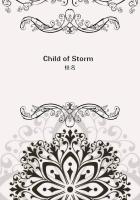Socrates proceeds:--Suppose the Laws of Athens to come and remonstrate with him: they will ask 'Why does he seek to overturn them?' and if he replies, 'they have injured him,' will not the Laws answer, 'Yes, but was that the agreement? Has he any objection to make to them which would justify him in overturning them? Was he not brought into the world and educated by their help, and are they not his parents? He might have left Athens and gone where he pleased, but he has lived there for seventy years more constantly than any other citizen.' Thus he has clearly shown that he acknowledged the agreement, which he cannot now break without dishonour to himself and danger to his friends. Even in the course of the trial he might have proposed exile as the penalty, but then he declared that he preferred death to exile. And whither will he direct his footsteps? In any well-ordered state the Laws will consider him as an enemy. Possibly in a land of misrule like Thessaly he may be welcomed at first, and the unseemly narrative of his escape will be regarded by the inhabitants as an amusing tale. But if he offends them he will have to learn another sort of lesson.
Will he continue to give lectures in virtue? That would hardly be decent.
And how will his children be the gainers if he takes them into Thessaly, and deprives them of Athenian citizenship? Or if he leaves them behind, does he expect that they will be better taken care of by his friends because he is in Thessaly? Will not true friends care for them equally whether he is alive or dead?
Finally, they exhort him to think of justice first, and of life and children afterwards. He may now depart in peace and innocence, a sufferer and not a doer of evil. But if he breaks agreements, and returns evil for evil, they will be angry with him while he lives; and their brethren the Laws of the world below will receive him as an enemy. Such is the mystic voice which is always murmuring in his ears.
That Socrates was not a good citizen was a charge made against him during his lifetime, which has been often repeated in later ages. The crimes of Alcibiades, Critias, and Charmides, who had been his pupils, were still recent in the memory of the now restored democracy. The fact that he had been neutral in the death-struggle of Athens was not likely to conciliate popular good-will. Plato, writing probably in the next generation, undertakes the defence of his friend and master in this particular, not to the Athenians of his day, but to posterity and the world at large.
Whether such an incident ever really occurred as the visit of Crito and the proposal of escape is uncertain: Plato could easily have invented far more than that (Phaedr.); and in the selection of Crito, the aged friend, as the fittest person to make the proposal to Socrates, we seem to recognize the hand of the artist. Whether any one who has been subjected by the laws of his country to an unjust judgment is right in attempting to escape, is a thesis about which casuists might disagree. Shelley (Prose Works) is of opinion that Socrates 'did well to die,' but not for the 'sophistical' reasons which Plato has put into his mouth. And there would be no difficulty in arguing that Socrates should have lived and preferred to a glorious death the good which he might still be able to perform. 'A rhetorician would have had much to say upon that point.' It may be observed however that Plato never intended to answer the question of casuistry, but only to exhibit the ideal of patient virtue which refuses to do the least evil in order to avoid the greatest, and to show his master maintaining in death the opinions which he had professed in his life. Not 'the world,' but the 'one wise man,' is still the paradox of Socrates in his last hours. He must be guided by reason, although her conclusions may be fatal to him. The remarkable sentiment that the wicked can do neither good nor evil is true, if taken in the sense, which he means, of moral evil; in his own words, 'they cannot make a man wise or foolish.'
This little dialogue is a perfect piece of dialectic, in which granting the 'common principle,' there is no escaping from the conclusion. It is anticipated at the beginning by the dream of Socrates and the parody of Homer. The personification of the Laws, and of their brethren the Laws in the world below, is one of the noblest and boldest figures of speech which occur in Plato.













